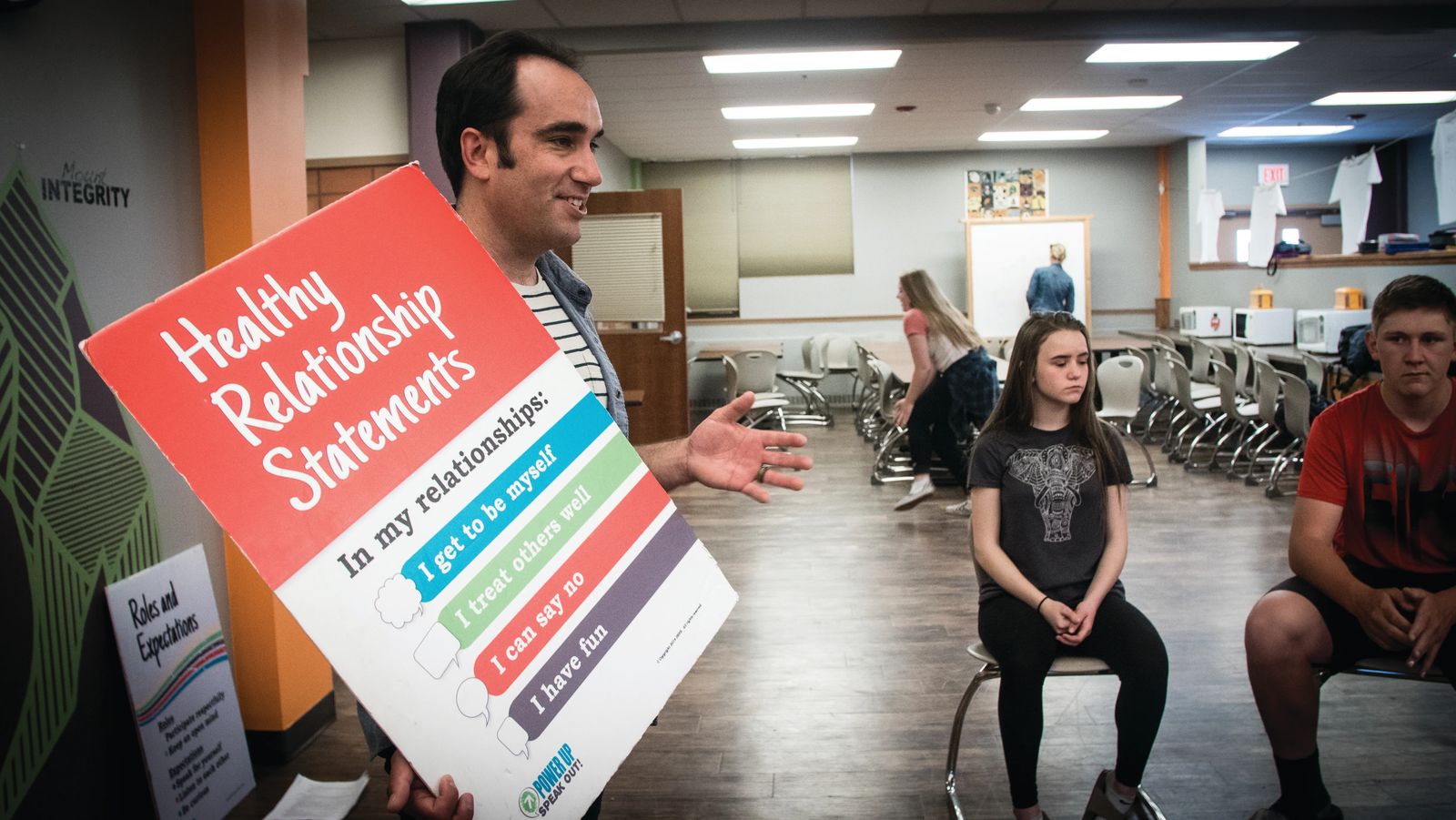
Teaching Boundaries, Empowering Kids
Anti-bullying program reaches kids in creative ways
“Duck!” a boy yells as a bright orange wiffle ball flies across the room and bounces off a desk. Another wiffle ball barely misses the teacher, who doesn’t seem concerned in the least. The whole class is throwing wiffle balls across the room, and that’s just what the teacher wants – active learning.
What can you learn from a wiffle ball?
If you’re thinking, “not much” then you’ve never had a lesson from Power Up, Speak Out! a program that teaches kids the basics of healthy relationships. The wiffle balls are just one of the engaging activities in the five-lesson toolkit, available to educators nationwide to use with their students in the middle grades.
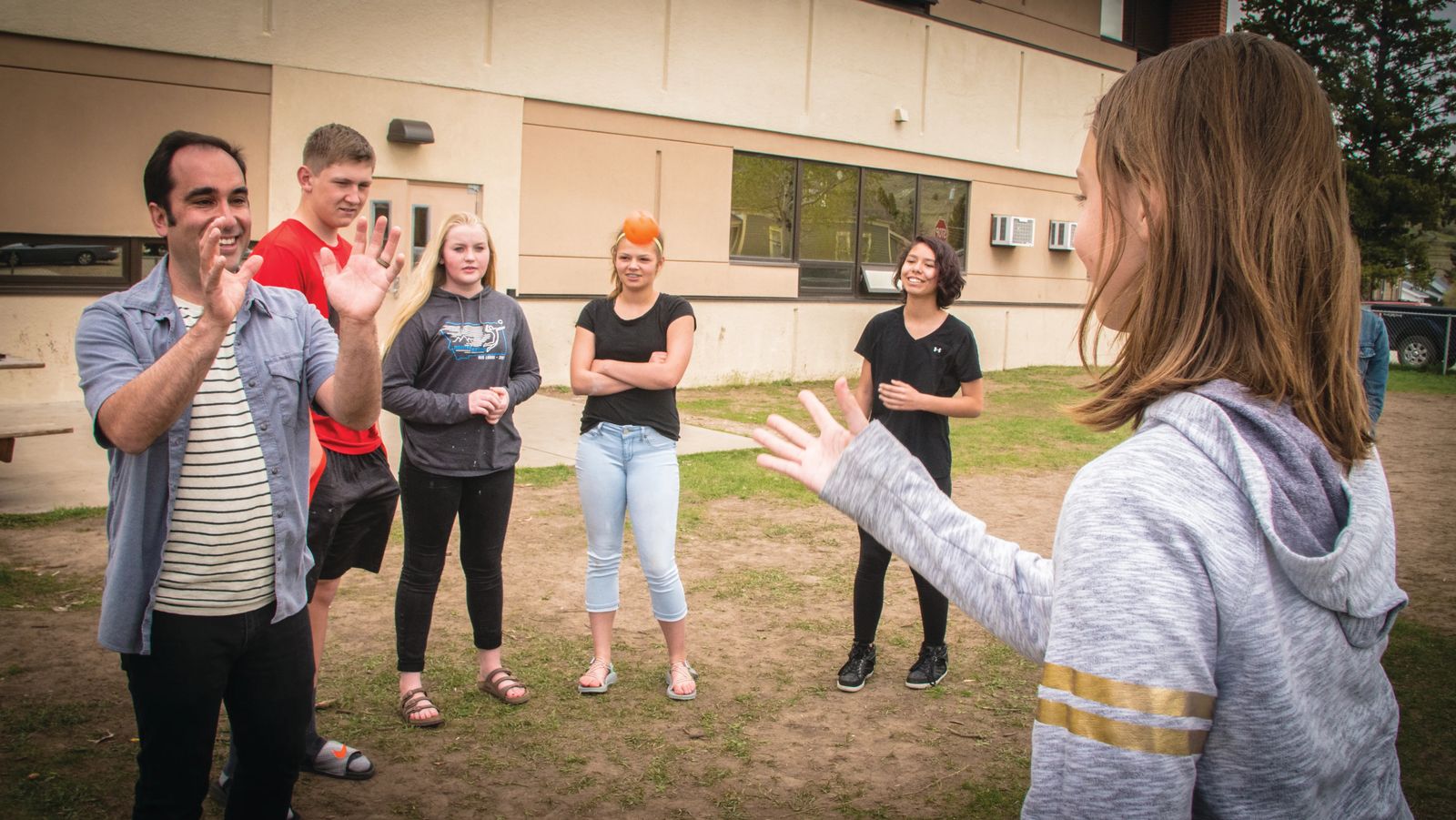
The five lessons, taught by a school counselor or teacher, cover not only the basics of healthy relationships. They’re learning what a healthy relationship looks like and what it takes to participate in one. They’re learning power dynamics and what can go wrong in a relationship when one person holds more control than the other. They’re learning the value of boundaries – both respecting them and how to cross them with permission, and they’re also learning the basics of consent.
In a way, Power Up is an anti-bullying curriculum. It introduces students to the concepts of respect, kindness and diversity, but unlike other mainstream anti-bullying programs, Power Up teaches children what to do rather than what not to do. It’s a positive approach that many teachers say is making a big difference in their classrooms.
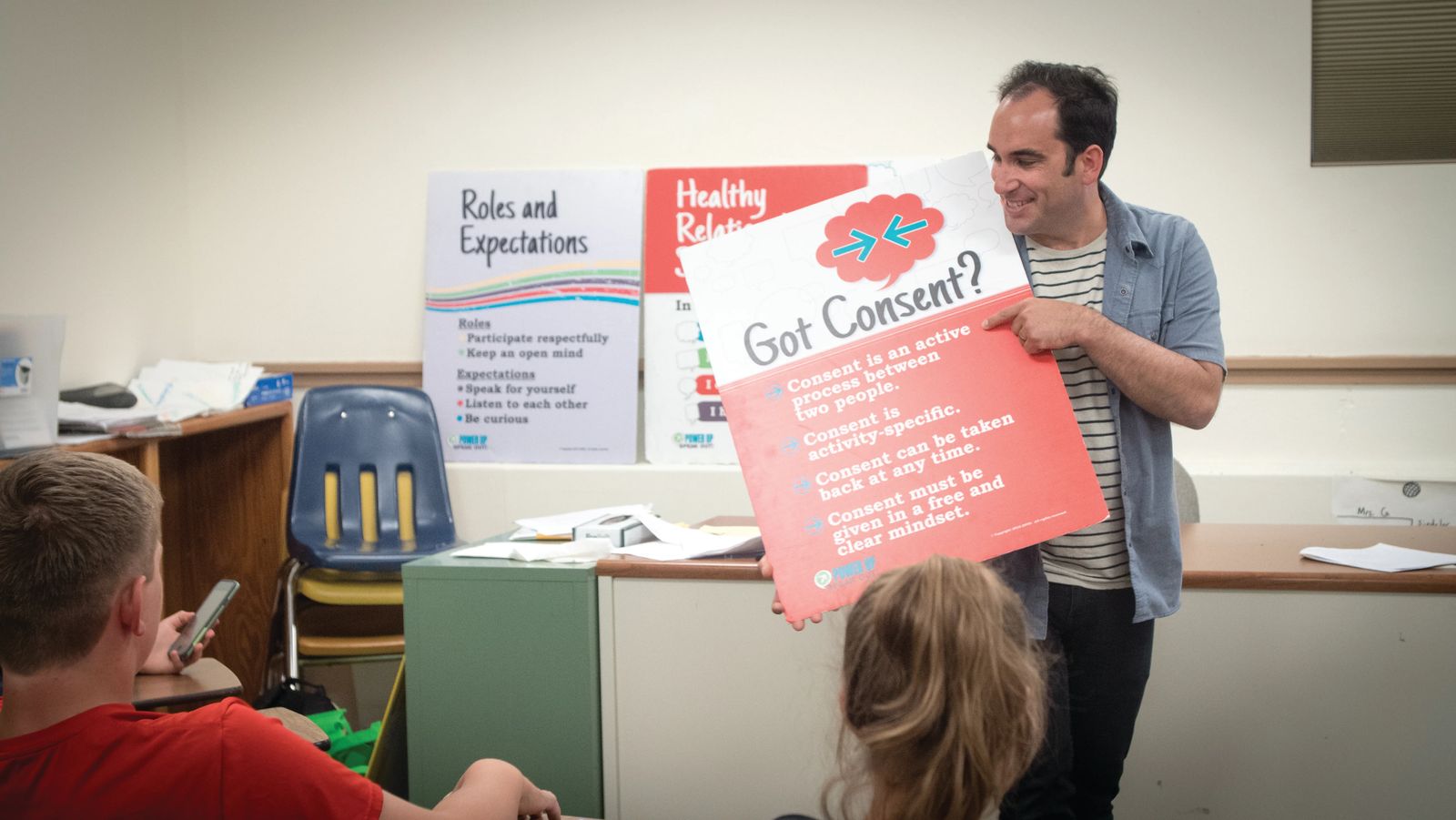
Power Up was launched in 2012 by Domestic and Sexual Violence Services (DSVS) in Red Lodge as an extension of its violence prevention programming. While anti-bullying programs were emerging across the nation, the staff at DSVS realized that, first, not many kids in Montana could relate to the content, which frequently introduced topics like gang violence. Second, the programs were introduced as school-wide presentations, often just an hour or two, once a year. They weren’t having a lasting effect.
“Kids would just kind of glaze over because it wasn’t making that connection to their life and what their experiences were on a daily basis,” says DSVS Executive Director Kelly Heaton. “From the beginning, it was about creating something that would speak to Montana students.”
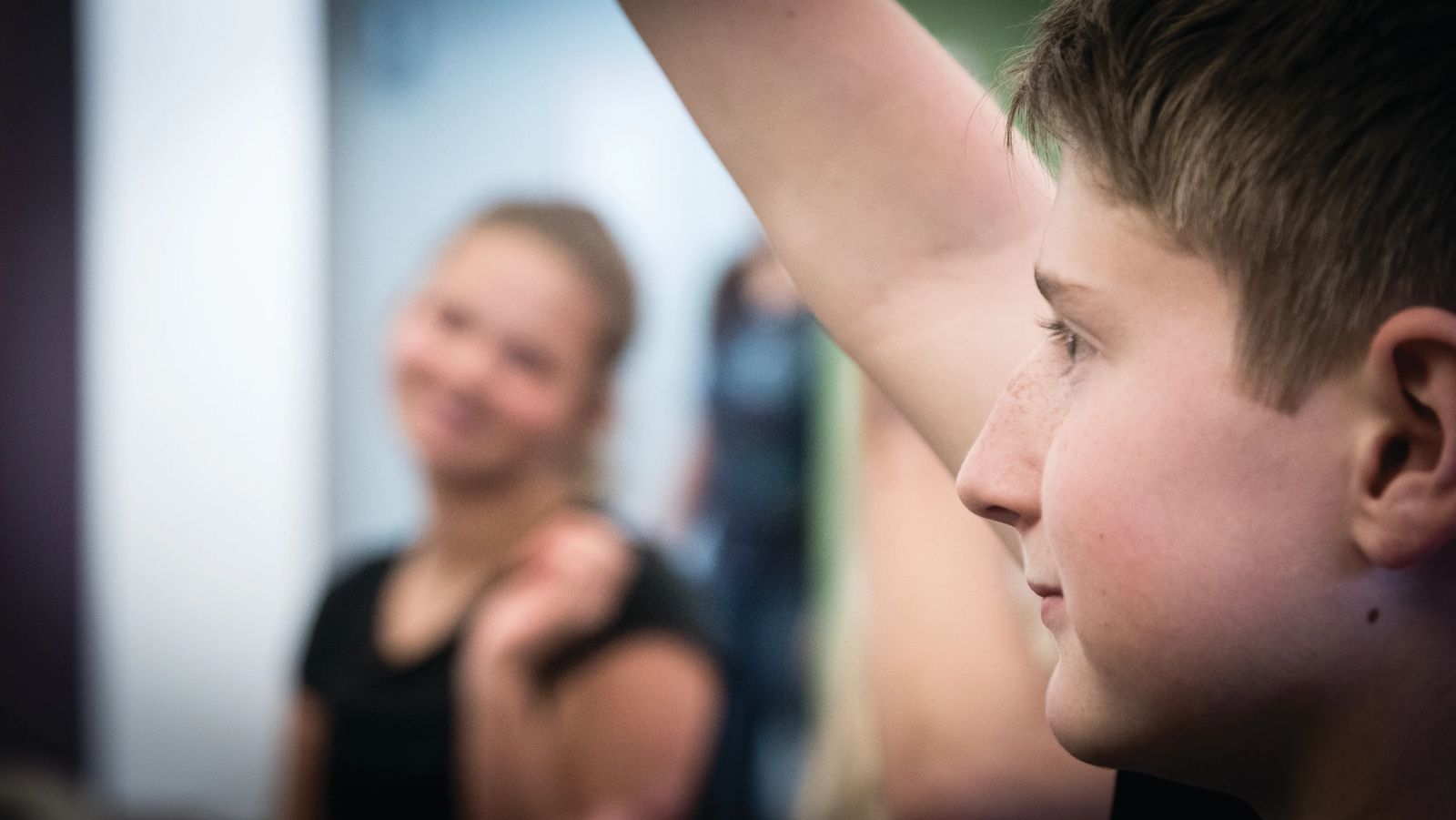
Power Up hinges on four healthy relationship statements that help kids identify whether they’re in a healthy relationship. They include: I get to be myself; I treat others well; I can say no; and I have fun. The lessons give students and teachers a common language and framework to talk about relationships both heathy and unhealthy. The focus on training teachers allows Power Up to be used multiple times over many years. There are no workbooks to replace or other materials that expire. The lessons align with Montana state curriculum standards and national Common Core standards.
“Teaching teachers to use it in their own classrooms builds on a trusted relationship that already exists and provides everyone with a common language to fall back on throughout the year,” Heaton says.
Wiffle balls (we knew you were still wondering) are used to introduce students to the basics of consent. By playing a simple game of catch, both students need to agree to play — it’s an active process between two people. They learn that it’s activity-specific — because you want to play catch doesn’t mean you want to play Monopoly. It can be taken back at any time — you can’t play catch with an unwilling partner. And it must be given in a free and clear mindset — there’s no playing catch with someone who is sleeping.
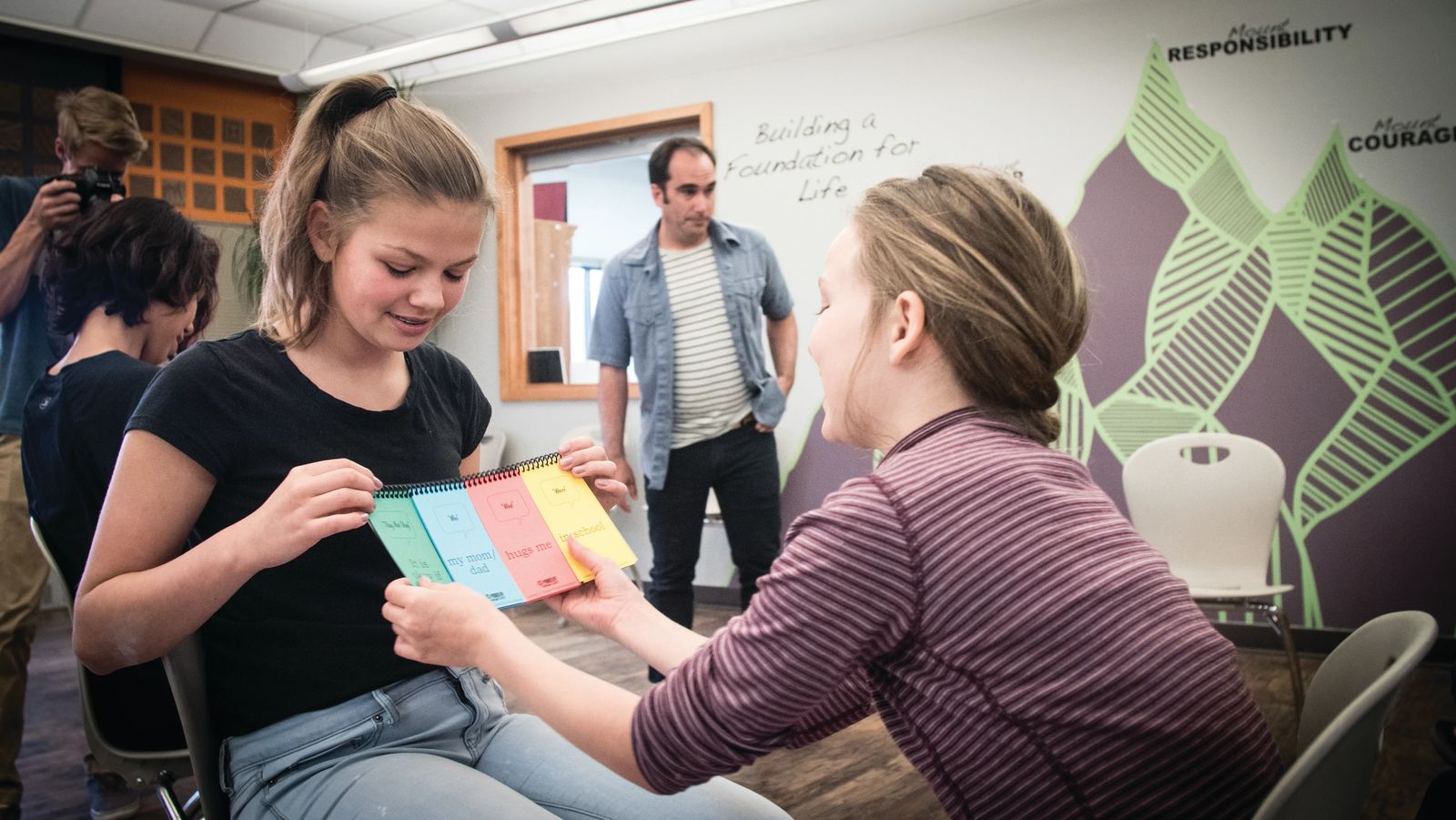
“When we talk about consent, we refer to it as “permission to cross a boundary” and we talk about crossing boundaries in positive ways,” says Kelsiann Helsley, the Power Up Speak Out! lead educator at DSVS.
“I think a lot of teachers’ first reaction to our consent lesson is that it’s going to be about sexual activity, but consent is a large part of our daily lives. It is there whenever there’s any interaction between two people,” Helsley says.
Because middle school students are often in the early stages of developing romantic relationships, they usually make the connection between consent and sexual activity on their own. Teachers aren’t expected to spell out that connection unless they think it’s appropriate.
Before joining the staff at Power Up, Helsley worked with emotionally disturbed middle school students in Billings-area schools and used Power Up. It was especially effective for the kids she worked with, she says. The lessons are interactive and engaging — just what middle school students need.
“They have the language of Power Up and they’re better able to express themselves and it’s easier for them to say what’s happening and get the help they need,” Helsley says.
Many teachers have related how students, after Power Up lessons, have come to them and shared stories of abuse. Because of Power Up, they finally have the words and the opportunity to share what’s happening with their teachers and school counselors. They can say, “Someone has crossed my boundaries without my consent.”
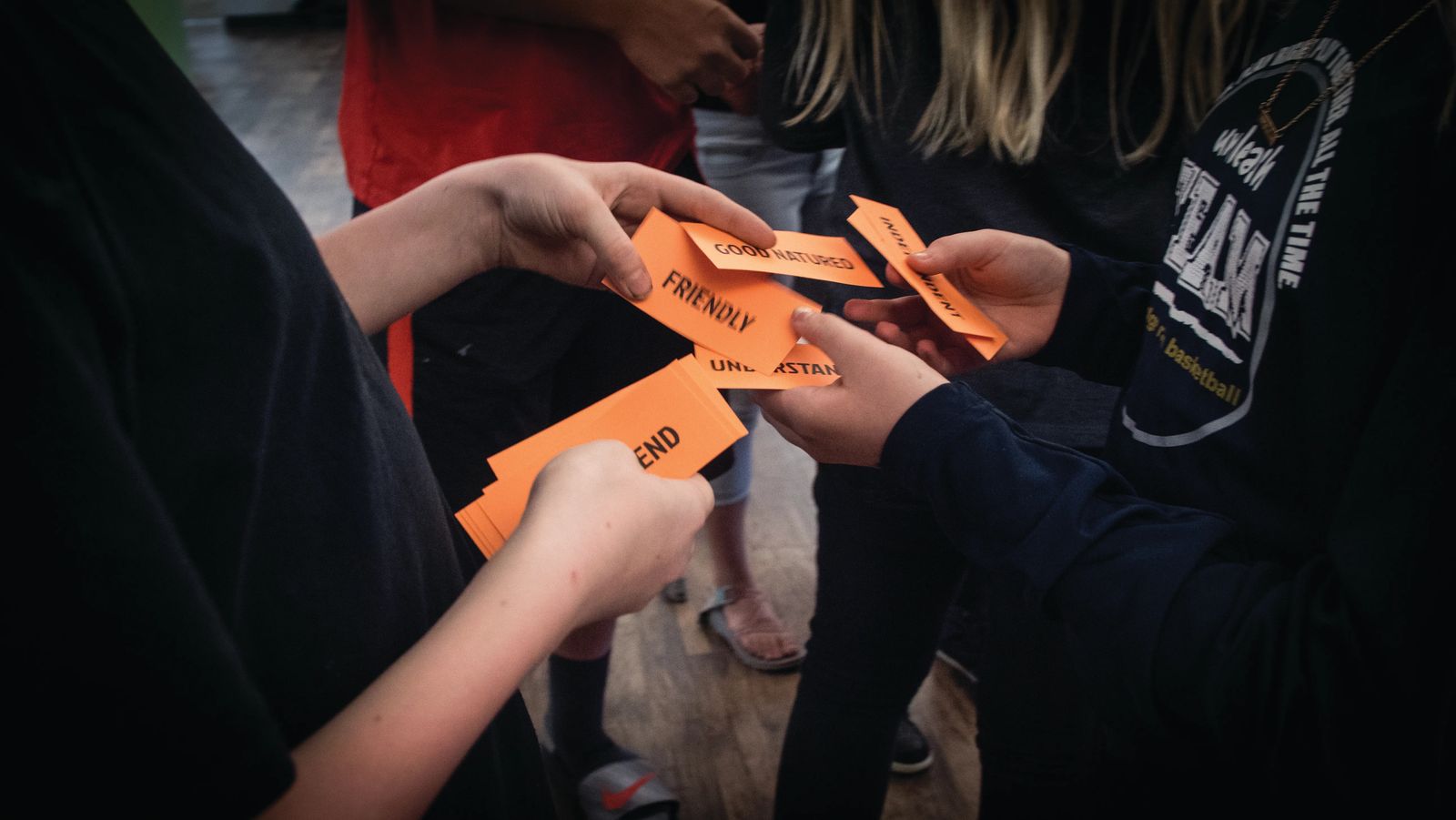
“Power Up gives us a jumping-off place in our conversations, the language is relatable and easy to use,” says Courtney French, a licensed professional counselor who works with youth in Billings-area schools. “Once I started incorporating it into my sessions with kids, it stuck.”
Power Up, while designed for educators, has gained traction with other professionals as well. It’s in use by therapists, youth pastors, in after-school programs and at summer camps. Even a few parents have purchased toolkits, which cost $349.
Power Up, Speak Out! is in use in 15 states across the nation. It’s most popular in Montana, where more than 700 educators use the lessons, and it reaches more than 8,000 students a year. Helsley and Heaton see growth in the program every year.
“The ultimate goal of Power Up is to break the cycle of violence. The more we can teach kids the basics of healthy relationships the less likely they’ll be to end up on our doorstep as adults,” Heaton says.
Power Up, Speak Out! can be found online at www.powerupspeakout.org














